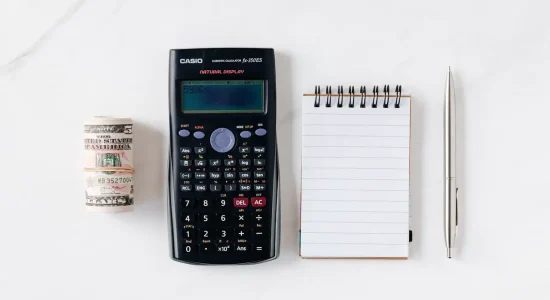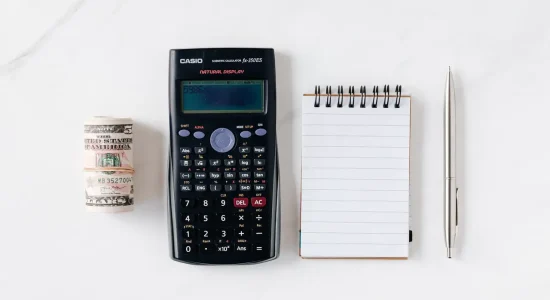There’s a general saying that you should start saving as much as you can by the time you’re 21. This is usually backed up by the fact that 21-year-olds often don’t have the liabilities and hence, they are expected to be able to easily save a lot.
According to the U.S. Bureau of Labor Statistics, people between the age of 16 to 21 made $611 in the first three months of 2021, so going by that figure, a 21-year-old should have around $6,000 in savings, considering they’re wise spenders.
So, what and how much should you save as a 21-year-old? Well, it pretty much depends on how much you can earn and what your expenses are.
In this article, I’m about to break down every tiny aspect you could consider when setting your saving goals!
The General Rule of Thumb for Saving by 21

The general rule almost everyone is told to follow is the 20-30-50 rule. In this, you’re supposed to set aside 20% of your monthly income in savings. This could be for retirement, emergencies, and even for long-term goals.
This way, by the time you’re 21 and religiously following this ideology you should have a bit more than $6000 to $10,000 in your savings. Now, I know it’s a lot and seemingly unattainable but with just a bit of effort, you can easily achieve this goal.
This figure is concluded by considering that people 21 and below earn around $31,772/annually. To many, this isn’t much if you have a tight budget and handle expenses alone.
But, if you do have extra support then a little goes a long way. Even if the 20% saving doesn’t meet your budget, there are plenty of other ways to save money, too.
Factors That Affect the Savings
Here are some of the factors that majorly affect the savings of 21-year-olds:
Saving money can only come when your expenses are in control. This isn’t just for 21-year-olds but for older pupils, too. Most families have savings of around $5000 in their account.
So, even if you somehow manage to save $6000 you’d be way ahead of a lot of people.
How To Save Money Efficiently By 21?

At 21 you’re freshly graduated and have a life’s worth of experience ahead of you. But, this is also the prime time to regulate your income so when the time comes, you can easily sit back and enjoy all the effort your 21-year-old self did.
Now I know budgeting can become a bit difficult but that’s what I’m here for! Saving is only difficult if you make it out to be. What I’m about to tell you will make your endeavor not only easy but also worthwhile.
» Read more about this in my post: 11 Reasons Why Budgeting is Important
#1 Establish an Emergency Fund
It may sound unnecessary but you never know when an emergency might hit you. For this exact reason, you should start keeping a fraction of your income to the side as an emergency fund.
The emergency fund should essentially be for food, clothes, and enough to pay at least 3 months of rent. This is easy if you’re single and have no family and health insurance.
It comes real handy when you’re in a pickle and don’t have any other option. A recent example is the global health scare when many people lost their jobs. It’s times like these that an emergency fund can be of utmost help.
That’s why you should try and keep a set amount aside. It doesn’t have to be $50 or a lot but even managing $10 or $20 a day can be helpful. As your income increases, you can also increase your savings.
Remember, the money you save shouldn’t be invested in any endeavor but should be kept in cash. It’s an emergency fund so if anything compels you to use the fund you should be able to use it in a jiffy.
#2 Limit Your Credit/Debit Use
Think about it, the term has the word “debt” in it. In no possible way can it be a good thing. And it isn’t. If you think your student loans are a burden then you haven’t owned a debit card.
Did you know that the interest levied on debit cards is far more than that on student loans? There’s an even greater evil than student loans that is pressuring our economy.
So, the most clever thing to do at 21 is to pay off any credit card debt you have. Trust me, this can help you a lot and you can spare the debt amount in your savings.
Now I’m not saying you shouldn’t use credit cards in general. Those are by far the easiest way of transactions.
You should, however, be wary when purchasing something you can’t pay off in a month. Try to only make purchases you can easily pay off. One loan on your shoulders is enough.
#3 Use Compound Interest In Your Favor
Interest sounds agonizing when we’re paying off debt. But, when it’s the profit we’re receiving; it suddenly becomes the best thing in the world. That’s your gateway to success. Using interest to your benefit.
When you’re young, investing in long-term projects can be helpful. If you’re able to invest in stocks then there’s no reason not to.
Since you’re still young, at 21 if you invest $5000 with a 9% return you’ll have around $220,000 in savings when you retire.
This is not only an easy passive income but it also keeps on compounding until you withdraw the amount. The trick is to invest in your stocks and forget about them.
Even if 10 years pass when you remember and cash in your income, you’ll still have made a lot.
#4 Pay Off Your Student Loans As Soon As Possible
This one is pretty obvious. Your student loans will keep on holding you down until you get rid of them completely. And what the catch on student loans is that it compounds.
So, the more you stall its payment the more it’ll compile. Private loans have the highest rate so pay those off before moving on to your federal loans. While you’re paying off your federal student loans you can also simultaneously move into your saving goals.
#5 Don’t Fall Into the Hands of Capitalism
There’s not much to say; we as humans always want the best. And when we are presented with the opportunity to have the best; we go all out. This is something you must control.
At 21 you’re not going to be having caviar every night. But, even when you’re able to, suppressing any unnecessary desires is important.
The longer you can maintain your humble lifestyle the more you can save on the side.
Now, I don’t mean you have to eat instant noodles for the rest of your life. I just meant habits that won’t make a difference in your lifestyle. For example, buying expensive items and living in a house you struggle to afford.
Since you’re still young, you can also reach the level of buying expensive items. It’s just a matter of time. For now, you should focus on saving every extra penny you can get.
» I have also written this post, about: 13 Reasons to Start Saving: The Importance of Saving Money
Where Should You Save Your Money When you’re 21?

So I’ve covered how you can save your money. And I’ve covered all that’s required to do so. But, after you’ve saved your money and made active movements in keeping your routine up, you’ll want to ask yourself: where do I keep all this?
Well, there are different places where you can store your savings. A little disclaimer, none of these include a piggy bank.
Savings Account
First and foremost, what better way to save money than by opening a savings account. These are the most legit and safe places to keep your money stored. Plus, they’re even offered by a variety of high banks and building societies.
If you put all your money in savings you’re bound to have it compiled up by the time you retire. You do get a certain tax amount cut from your savings but the interest rate is relatively high so any tax cut would hardly make a dent.
Savings Apps
I know this may seem pretty shady but hear me out. Saving apps are an innovation the 21st century is glad to have. Here, a variety of apps like Chime, Mint, Acorns, etc., and online banks exist to help you save your cash effectively.
The thing about these apps is that they often offer better interest rates than commercial banks. This is what mainly drives people to invest in these apps. Everyone wants a higher interest when it comes to making a profit.
It even has a host of saving features so, with apps such as these, you can effectively have a savings account that isn’t only reliable but also offers a better rate than most companies.
Investments
This is kind of risky but if done the right way can be greatly beneficial. The reason this is even a thought to consider is that the right investment can bring you a lot of cashback profit.
Since this is purely out of how much revenue your company can make; the more they earn the higher your percentage will be. Therefore, many intellectual individuals opt for investments rather than savings accounts.
There’s no doubt that this is the perfect way to save enough to counter inflation. However, you should evaluate your company of choice before investing in it. If these bring in the most profit they also bring in the most loss.
Individual Savings Account
Lastly, if none of the options above work for you, then opening an individual savings account(ISA) can also prove helpful.
What this does is it helps you save your money tax efficiently. That said, an ISA is a tax-free savings account, unlike every other account which does deduct an amount from your savings.
It allows you to take your money and keep it in the ISA account which then shields it from any sort of tax. Income tax, tax on dividends, and even capital gains tax; all don’t hit your savings.
In the end, you’re left with crisp savings which you can cash at any time. It is important to remember that the maximum limit you can put into your account is about $20,000. Any more and the no-tax rule wouldn’t apply.
Why Is It Important To Save Money by 21?

Saving money has very personal reasons. Not everyone saves for the same thing. But, the action itself does have the same notion behind it: that we need to gather funds to do or get something.
No matter where you are on your financial journey, you will need to keep extra stock of money allocated for when troubling times hit. This is particularly the case when you’re 21 and just entering the corporate world.
So why is saving money important? Firstly, you can pay up any pending debt or loan with the amount you saved. This can keep you from adding further interest to your debts.
Secondly, as I mentioned at the start, it also allows you to have an emergency fund. So, when trouble hits, you have a solid backup plan.
Lastly, it’s useful for long-term goals. You could invest the amount and get your cashback years later; maybe as a retirement fund or just to have something extra stored. Either way, by now it’s clear that savings can go a long way.
Why Is It Important To Set Savings Goals?
It’s general knowledge that making a goal will help you achieve it quicker. This goes the same for money goals, too. If you set a full-fledged goal for yourself there’s a greater chance you’ll make extra effort to reach it.
One of the major reasons to have savings goals is so you can have a tangible benefit towards work. It also provides you with some motivation to work harder. To add, it can also help you track your financial process and keep you updated on every penny you spend.
Savings can keep you uplifted and at times, even stop you from spending unnecessarily. That’s why budgeting and controlling your spending have more benefits than just one.
Why Is a Budget Essential for Saving?
Like every goal, you need a plan. Here, the plan in question is an effective budget. As easy as I can put it, a budget is how much you rate your money to align with your expenses.
Creating and following a budget can help you keep track and make your spending more secure. When you’re on a budget, you can take into account your savings, your overall expenses and also count your pointless purchases.
Setting a budget isn’t easy. What’s even tougher is following it. When making your savings plan as a budding millennial then let me tell you, you’ve got a lot on your shoulders. But it isn’t anything you can’t solve.
» Maybe this also could be of interest to you: How to Learn How to Save Money
Conclusion
The important factor is to get your priorities straight and stick firmly to your goal. If regular goals require you to be firm then savings goals require double that amount.
One day of slacking off or just a bit of laziness can cause you to fall right back to the start. These goals take time, and only being 21 you have plenty of it! Don’t expect yourself to make $6000 within the first few years.
Even if you have $6000 in savings by the time you’re 30 then that’s still an advancement you’ve made from your peers.







